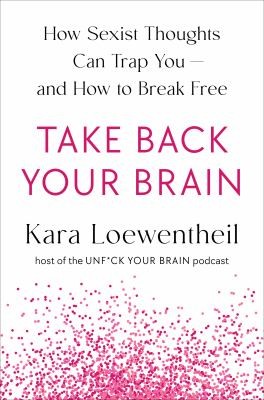Take Back Your Brain: Strategic Insights for Modern Professionals
Introduction: Reclaiming Cognitive Control in the Digital Age
In “Take Back Your Brain,” Kara Loewentheil presents a compelling narrative on the importance of cognitive control in today’s fast-paced, digitally-driven world. As professionals navigate the complexities of modern business environments, the ability to manage one’s mind becomes a critical asset. Loewentheil’s work offers a roadmap to reclaim mental autonomy, drawing on psychological insights and strategic frameworks that empower individuals to thrive amidst constant change.
The Cognitive Revolution: Understanding the Mind’s Role in Professional Success
Loewentheil begins by exploring the cognitive revolution, highlighting how understanding the mind’s mechanics can enhance professional efficacy. She argues that cognitive control is not merely about managing thoughts but involves a deep comprehension of how mental processes influence behavior, decision-making, and leadership.
Key Insights:
- Cognitive Awareness: Recognizing thought patterns and biases that affect professional interactions and decisions. This is akin to the self-awareness emphasized in Daniel Kahneman’s “Thinking, Fast and Slow,” which illustrates how recognizing cognitive biases can lead to more rational decision-making.
- Mindset Shifts: Adopting a growth mindset to foster resilience and adaptability in the face of challenges. Carol Dweck’s “Mindset: The New Psychology of Success” provides a similar perspective, advocating for the power of embracing challenges as opportunities for growth.
- Emotional Intelligence: Leveraging emotional awareness to improve communication and leadership effectiveness. Daniel Goleman’s “Emotional Intelligence” further explores how mastering one’s emotions can enhance interpersonal efficacy and leadership.
Strategic Frameworks for Mental Mastery
Building on the foundation of cognitive awareness, Loewentheil introduces strategic frameworks that professionals can apply to enhance mental mastery. These frameworks are designed to integrate seamlessly into daily routines, fostering a proactive approach to cognitive management.
Practical Applications:
- The Thought Model: A structured approach to identifying and reshaping negative thought patterns, inspired by cognitive-behavioral techniques. Similar to Byron Katie’s “The Work,” this model involves questioning the validity of thoughts and reframing them to reduce stress and increase mental clarity.
- Mindful Leadership: Incorporating mindfulness practices to enhance focus, reduce stress, and improve decision-making. Jon Kabat-Zinn’s “Wherever You Go, There You Are” complements this by offering practical mindfulness techniques for everyday use.
- Neuroplasticity in Action: Encouraging continuous learning and adaptability by leveraging the brain’s ability to rewire itself. This concept echoes Norman Doidge’s “The Brain That Changes Itself,” which illustrates how neuroplasticity can be harnessed to overcome mental limitations and foster personal growth.
Embracing Digital Transformation: Cognitive Strategies for the Modern Workplace
As digital transformation reshapes the business landscape, Loewentheil emphasizes the need for cognitive strategies that align with technological advancements. She explores how professionals can harness digital tools to augment cognitive capabilities rather than overwhelm them.
Core Concepts:
- Digital Mindfulness: Balancing technology use with mental well-being to prevent digital burnout. This is increasingly relevant in an era where constant connectivity can lead to fatigue, and echoes Cal Newport’s “Digital Minimalism,” which advocates for intentional technology use.
- AI and Cognitive Enhancement: Utilizing artificial intelligence to streamline tasks and enhance cognitive functions, drawing parallels with works like “The Second Machine Age” by Erik Brynjolfsson and Andrew McAfee, which discusses how AI can augment human capabilities.
- Agile Thinking: Adopting agile methodologies to foster a culture of innovation and rapid problem-solving. This mirrors the principles in Jeff Sutherland’s “Scrum: The Art of Doing Twice the Work in Half the Time,” which emphasizes adaptability and iterative progress in dynamic environments.
Leadership and Cognitive Empowerment: Cultivating a Transformative Work Environment
Leadership plays a pivotal role in shaping organizational culture and driving cognitive empowerment. Loewentheil outlines how leaders can cultivate environments that support mental well-being and professional growth.
Leadership Strategies:
- Empathetic Leadership: Prioritizing empathy and understanding to build trust and foster collaboration. Simon Sinek’s “Leaders Eat Last” underscores the importance of empathy in creating safe and productive work environments.
- Cognitive Diversity: Encouraging diverse perspectives and cognitive styles to drive innovation and adaptability. Scott Page’s “The Diversity Bonus” highlights how diverse teams outperform homogeneous ones by bringing varied insights to problem-solving.
- Transformational Leadership: Inspiring teams through visionary thinking and a commitment to personal and professional development. This concept aligns with James MacGregor Burns’ “Leadership,” which describes transformational leaders as those who inspire and motivate others to achieve more than they thought possible.
Final Reflection: Synthesis and Application for Professional Growth
In concluding her work, Loewentheil reinforces the importance of cognitive autonomy as a cornerstone of professional success. By reclaiming control over their minds, professionals can navigate the complexities of the modern world with confidence and clarity.
Final Reflections:
- Continuous Growth: Embracing lifelong learning and self-improvement as key components of cognitive autonomy. This aligns with Peter Senge’s “The Fifth Discipline,” which advocates for a learning organization where continuous improvement is integral.
- Resilience and Adaptability: Cultivating resilience to thrive in dynamic environments and embrace change as an opportunity for growth. Angela Duckworth’s “Grit” provides insights into how perseverance and passion drive long-term success.
- Empowered Action: Taking deliberate, informed actions that align with personal and professional goals, leading to a fulfilling and impactful career. This notion is reinforced in “The 7 Habits of Highly Effective People” by Stephen Covey, which emphasizes proactive behavior and alignment with core values.
“Take Back Your Brain” offers a transformative approach to professional development, equipping individuals with the cognitive tools needed to excel in an ever-evolving landscape. By integrating Loewentheil’s insights, professionals can unlock their full potential and lead with purpose and clarity.
Through the synthesis of ideas from varied disciplines, readers are empowered to apply these principles across domains such as leadership, design, and change management, fostering environments that not only adapt to but also anticipate the challenges of the future.

